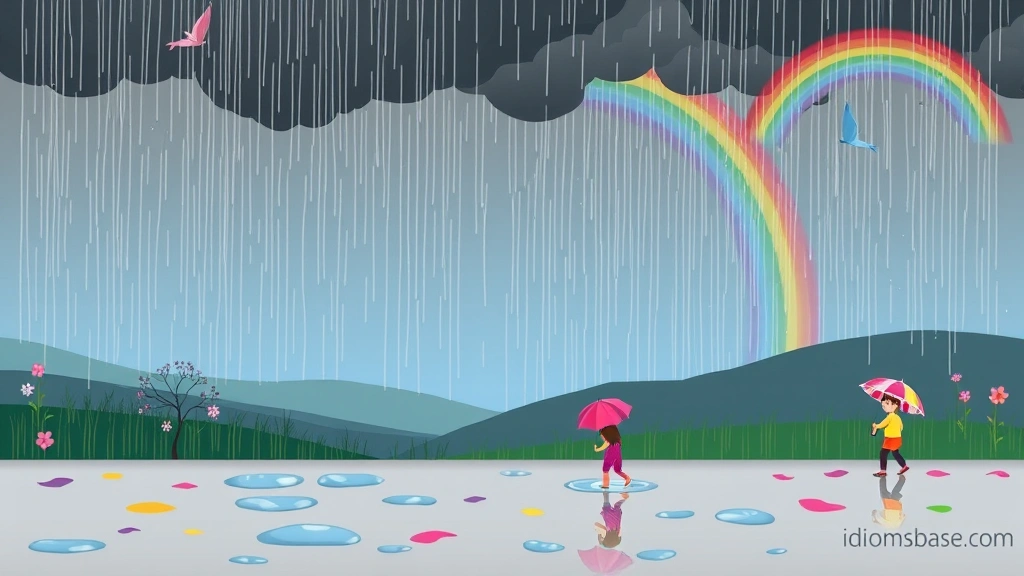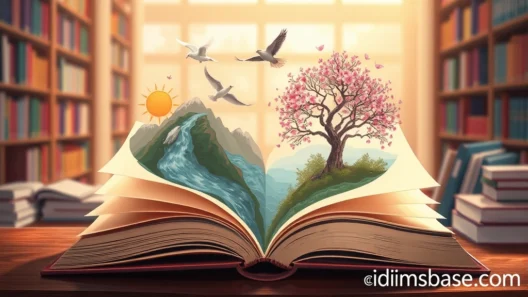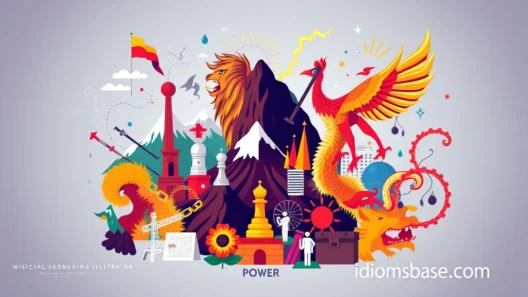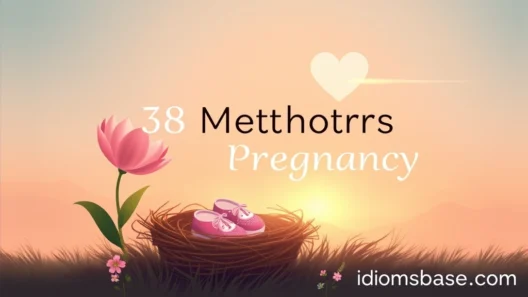Ever stared out a window, mesmerized by the rhythmic patter of rain, and thought, "Wow, that's more than just water falling from the sky"? You're not alone! Rain, in all its forms, has a magical way of sparking our imaginations. It’s a universal experience, yet so deeply personal. From a gentle drizzle to a torrential downpour, rain evokes countless emotions and paints vivid pictures in our minds.
That's why we often reach for metaphors to describe it. Metaphors aren't just fancy words; they're powerful tools that help us understand and express complex ideas by likening them to something simpler or more familiar. They add color, depth, and a touch of poetic flair to our language. Ready to dive into a refreshing splash of linguistic creativity? Let's explore 38 captivating metaphors for rain that will make you see every raindrop in a whole new light!
The Sky's Tears and Other Emotional Downpours
Rain often brings with it a sense of melancholy or reflection. It can feel like the world is shedding a tear, or perhaps, a collective sigh.
- The sky's tears: A classic for a reason! It perfectly captures the somber, weeping quality of a rainy day.
- Nature's weeping: Similar to the sky's tears, but broader, encompassing all of nature in its sorrow.
- A celestial cry: Elevates the idea of weeping to a grand, cosmic scale.
- Heaven's lament: Suggests a deep, mournful expression from above.
- The world sighing: A gentle, collective exhalation, often associated with a light, continuous rain.
Liquid Curtains and Veils: Visual Metaphors
Sometimes, rain isn't just falling; it's creating a visual barrier, a shimmering screen that transforms the landscape.
- A silver curtain: Imagine countless raindrops shimmering, creating a beautiful, translucent wall.
- A watery veil: Like a delicate, see-through fabric draped over everything.
- Nature's shroud: A more dramatic, enveloping image, often for heavy, persistent rain.
- A shimmering net: Each drop a knot, creating an intricate, moving pattern.
- Glass beads falling: Each raindrop is perfectly formed, like a tiny, sparkling bead.
The Sky's Shower and Cleansing Rains
Rain is often associated with washing away the old, refreshing the new, and bringing a sense of purity.
- Nature's shower: A refreshing wash for the entire world.
- The earth's bath: Everything gets a good scrub.
- A divine cleansing: Rain as a purifying force, washing away grime and negativity.
- A baptism for the land: A spiritual renewal, a fresh start for the earth.
- The sky's broom: Sweeping away dust and pollution, leaving everything sparkling.
Orchestral Patter and Rhythmic Beats
Listen closely, and you'll notice rain has its own unique rhythm and soundscape. It's a symphony!
- A drum solo on the roof: The unmistakable, rhythmic thrumming of raindrops.
- Nature's symphony: A complex, ever-changing musical piece played by the elements.
- The patter of tiny feet: A soft, gentle sound, almost like little creatures scurrying about.
- A whispered melody: For very light, almost imperceptible rain.
- The earth's heartbeat: A steady, comforting rhythm that nourishes life.

Liquid Diamonds and Sparkling Jewels: Precious Rain
Raindrops can be incredibly beautiful, catching the light and sparkling like precious gems.
- Liquid diamonds: Each drop glinting and shimmering, truly precious.
- Falling pearls: Smooth, round, and lustrous drops.
- Crystal tears: Evokes both beauty and a touch of sadness.
- Jewels from the sky: A treasure trove descending from above.
- Nature's glitter: A playful image of sparkling, tiny fragments.
The Sky's Overflow and Abundant Showers
Sometimes, it feels like the sky just can't hold it all in, leading to an outpouring of water.
- The sky's overflowing bucket: A simple, yet effective image of abundance.
- A river from the heavens: A powerful, continuous flow.
- Nature's outpouring: An unrestrained release of water.
- A deluge of grace: Suggests a blessing, an overwhelming abundance.
- The clouds bursting: A sudden, dramatic release of accumulated water.
Growth and Nurturing Rain

Rain is essential for life, bringing nourishment and fostering growth.
- The earth's drink: Essential hydration for parched land.
- Life's elixir: A magical potion that sustains all living things.
- Nature's lifeblood: The vital fluid that courses through the veins of the earth.
- A gardener from above: Tending to the earth, ensuring everything thrives.
- The feeder of roots: Directly nourishing the very foundations of life.
Playful and Whimsical Rain Metaphors
Rain can also be a source of joy, wonder, and playful imagination.
- The sky spitting: A quick, sudden, and often unexpected burst of rain.
- A dance of droplets: Each raindrop performing its own unique movement.
- Nature's confetti: A celebratory, scattered shower of tiny wonders.
Key Takeaways
- Metaphors enrich language: They transform simple descriptions into vivid imagery.
- Rain evokes diverse emotions: From sorrow to joy, cleansing to growth.
- Visual and auditory metaphors are common: Rain creates both sights and sounds that inspire.
- Rain is often personified: Given human qualities like weeping, sighing, or dancing.
- Understanding metaphors deepens appreciation: You'll never look at rain the same way again!

Frequently Asked Questions
What is a metaphor?
A metaphor is a figure of speech that directly compares two unlike things without using "like" or "as." It states that one thing is another, even though it's not literally true. For example, saying "the rain is a silver curtain" means the rain is the curtain, not just like one. This direct comparison creates a stronger, more imaginative connection.
How do metaphors for rain enhance writing?
Metaphors make writing more engaging and descriptive. Instead of simply stating "it rained," you can use a metaphor like "the sky wept" or "liquid diamonds fell." This adds emotional depth, creates vivid mental images for the reader, and makes the text more memorable and impactful. They transform ordinary descriptions into poetic expressions.
Can I create my own metaphors for rain?
Absolutely! The best metaphors often come from your own unique observations and feelings. Think about what rain looks like, sounds like, or how it makes you feel. Does it remind you of something else entirely? For instance, if rain makes you feel cozy, you might say "the rain is a warm blanket." The possibilities are endless, and your personal touch will make it truly special.
Are there different types of rain that inspire different metaphors?
Yes, definitely! A gentle drizzle might inspire metaphors like "a whispered melody" or "the patter of tiny feet," suggesting softness and subtlety. A heavy downpour, on the other hand, might evoke "the sky's overflowing bucket" or "a drum solo on the roof," emphasizing intensity and sound. The specific characteristics of the rain—its intensity, duration, and sound—heavily influence the metaphors we choose.
Why do humans use metaphors so much in everyday language?
Metaphors are hardwired into our thinking! We use them constantly, often without even realizing it. They help us understand abstract concepts by relating them to concrete experiences. For example, we talk about "wasting time" (as if time is a physical substance) or "the head of the company." Metaphors simplify complex ideas, make communication more efficient, and add richness to our language, reflecting how our minds connect different ideas.
Isn't it incredible how a simple natural phenomenon like rain can inspire such a rich tapestry of language? Each metaphor is a tiny window into how we perceive the world, adding layers of meaning and emotion to something we often take for granted. So next time the clouds open up, don't just see water; see tears, curtains, diamonds, or even a celestial symphony! What's your favorite metaphor for rain? Share your thoughts and let's keep the conversation flowing!






